At Gamescom this year we got a chance to head over and meet with the guys at Albion Online to see what was currently happening with their f2p fantasy sandbox MMORPG, taking its lead from many older classic MMORPGs such as Ultima Online and Dark Age of Camelot; adding a much richer and hardcore style to gameplay as opposed to the all too familiar fantasy themeparks. Players will have to work together to survive the relatively unforgiving nature of the game, providing they want to achieve the greatest rewards and tackle overcome the most overwhelming challenges. Stepping into the room we were met with the game loaded up on the big screen with one character and an accompanied second character that was logged in on the tablet in front of us, demonstrating the games flawless cross compatibility between platforms.
The devs gave us a general overview of the games’ core functions, having played the game in early alpha when it just came out it was nice to get a more deeper insight to the mechanics of the game and how everything ties into the player driven economy. There is a very symbiotic nature to resource gathering, crafting and trading, as well as combat, all of which tie together to create an extremely deep and robust metagame that is the main principle of Albion Online.
Starting out with resource gathering the majority of elements in the game can be used to create or harvest resources, whether mining rocks, cutting wood from trees or harvesting goods from the flora scattered around the wilderness; alternatively players can even create farms on their own land to create food or breed animals and mounts. Some resources can only be gathered from the most dangerous areas, or dropped from the deadliest creatures, but once they are acquired players can use them to craft goods or trade them with other players.
Crafting can be performed at various workstations around the world, with public stations available in the safe zones, players will have to head into the player cities to use the improved stations and make superior goods. To keep the economy moving items have durability and will ultimately fall apart from use, meaning a constant need for resources and new crafted gear is always required. Similarly with food, food can be acquired and created by low level players but is still required by high level players as a necessary resource to run buildings and player cities, buildings themselves being another craftable item.
Practically every item in the game that is used by a player is crafted, the player driven economy being the guiding principle, particularly weapons and armor that will fundamentally define a characters role and available abilities based on what abilities were built into the particular item; there are no classes and gear determines your skills. However, simply having access to a weapon doesn’t mean that you can use it and players must work their way through the Destiny Board to unlock talents that let them use new items, weapons and armor, where using them will allow you to unlock the next tier in a long branch from a large network of skills and talents. The Destiny Board doesn’t solely focus on combat orientated traits though and players can equally focus on unlocking Crafting talents and Farming, allowing players to truly specialise on being a non-combat character yet still having worth to other players.
The constant need for resources and new items means that trade thrives within the game, starting out with transporting goods there are dangerous locations that players may need to journey through or harvest resources from that provide a challenge with a lucrative reward. Items can be sold at the market, each town having its own local market so that items only appear on the market that they were delivered to, similarly with banks being local storage so players can’t simply access items from anywhere in the world.
One of the key elements of the game is the division of land between the safe haven that lies outside of the walled area in the middle of the map, and the open PVP location within the walls territories where the best resources can be found, Guild territories, and the most dangerous and rewarding dungeons. Players are free to avoid the PVP zones, the resources on the outside of the wall are equally as needed, though not quite as prized, and whilst the game is very PVP centric with the majority of the features and metagame revolving around it, players can play their part by operating on the periphery without ever putting themselves in jeopardy. However, those who play the game too safe are going to miss out on a lot of what makes Albion Online great; in the PVP zones there is full looting, if you die then any items on your body at the time can be taken from you. What this means is that those players traveling through the area transporting goods by oxen, or hunting for resources, if they are not combat focused as their focus has been elsewhere then they may have to hire other players to help escort them.
Owning your own property is a viable options, real estate comes in various forms with players able to have their own instanced home on one of the islands in the game; all players access this location, the layout being exactly the same, but it is instanced for each player to upgrade and design as they need. Alternatively players can help build up cities in the frontier areas and purchase some of the real estate to build player cities, where the majority of the crafting is done, however the Guild Territories system is the primary end game source of fun. Within the wall there are various territories broken up and Guilds can lay claim to them to build their own Guild cities, in doing so these areas are inaccessible to non-guild members, and they provide the most efficient crafting bonuses to any crafting done within their borders. Taking an unoccupied Guild Territory is simple enough, but keeping is another matter.
When first laying claim to a territory the Guild Leader must choose four periods throughout the day that their territory will become vulnerable; during this time (which lasts for an hour) other Guilds can attack the city and try to pillage and destroy it and so choosing times that your guild will definitely be around to defend is vital. Guild Raids on other territories occur when a Guild declares an attack, when they have 5 of their players within the local area they will be teleported to an instanced based battle to try and defeat the rival guild; if successful they will remove one of the guilds Defend Points, remove all the points and they will claim the territory for themselves. The Defend Points replenish over time, meaning Guilds need to be pretty persistent in their attacks to topple a guild, but also gives Guilds a fighting chance to build up their defenses before instantly losing their newly acquired territory.
Although the primary focus of the game is PVP (and crafting) for the most part, players can still enjoy PVE content with the variety of camps and spawns all over the world, including larger and more dangerous dungeons. One dungeon in particular that we were introduced to showed a particularly challenging boss summoning portals which brought through minion waves, forcing players to split their time between fighting the boss, fighting the waves and destroying the portals he continues to spawn. An intriguing element is that the dungeon was created to be a 15 person dungeon, however groups can enter with more players if they wish but the boss will become tougher to account for this, meaning simply overwhelming the boss with numbers won’t work. Although you can only have 20 people in a group the dungeons are open areas and so more players can enter if they wish, even rival guilds and as the main dungeons are in open PVP locations it means rival Guilds can try to ambush the Guild fighting the boss and take them out whilst they are busy, so a Scout at the dungeon entrance is always worthwhile!
Speaking about monetization the game is going down the free to play route with an optional Premium Membership account that can be purchased with money or in game currency, that can be traded, similar to the Plex system seen in EVE Online. These account give a variety of bonuses including speedier progression up the Destiny Board, more silver, more XP and other boosts. The game is currently still in Alpha stage, however plans are to have it enter closed beta towards the end of 2015; keep an eye open for signups as the game is well worth it from what we’ve seen.
If you want to know more about this title visit our profile by clicking the "Info" button below.
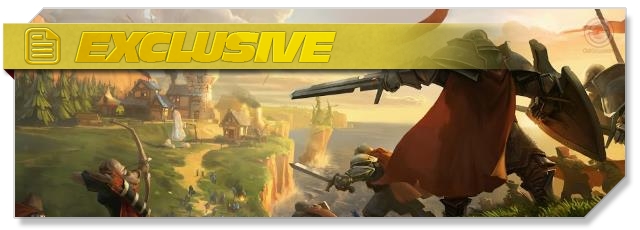
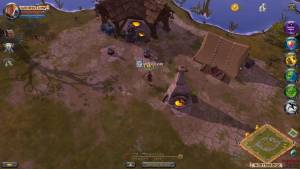
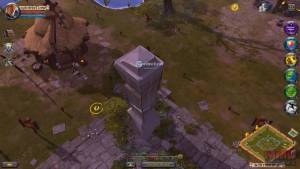
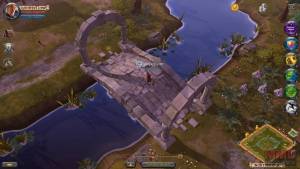
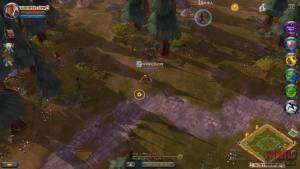
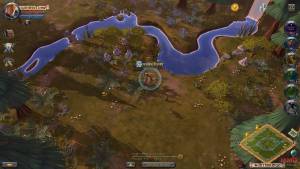
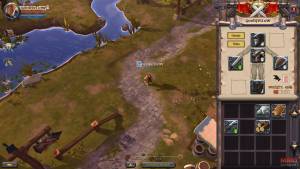
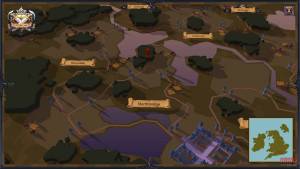
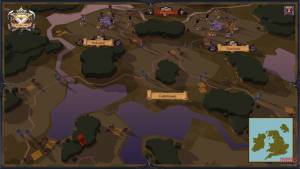


Deja tu comentario
You must be logged in to post a comment.